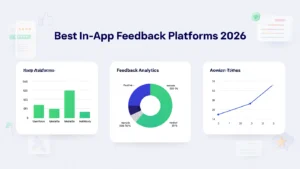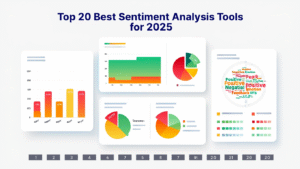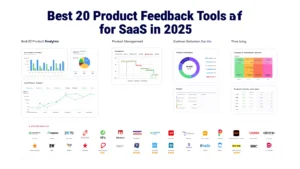Corporate events remain a central part of the UK business environment, providing spaces for networking, knowledge exchange, and employee engagement. In 2025, the UK event sector is forecasted to reach £27.6 billion in value, showing a steady climb from the pandemic rebound. Around 62% of UK businesses increased event spending in 2024, highlighting renewed confidence in face-to-face formats alongside digital hybrids. London still leads in event hosting, but regional centres like Manchester, Birmingham, and Edinburgh are recording double-digit growth in corporate bookings.
At the same time, employee-focused gatherings are on the rise. A 2024 survey found 71% of UK employers hosted internal events such as away days and training summits, linking these to higher retention and workplace satisfaction. The balance of external-facing conferences and internal development sessions is shaping how organisations allocate budgets.
This blog is designed to serve as a hub for professionals, researchers, and planners monitoring the UK corporate events market. By combining official datasets, industry reports, and verified UK statistics from the last two years, it brings clarity to where the sector is heading. Each section will break down trends in budgets, formats, regional growth, sustainability, and technology, helping readers cite up-to-date evidence with confidence.
Budget Allocation and Spending Trend

Corporate event budgets in the UK are undergoing notable adjustments as firms balance rising costs with growing demand for in-person and hybrid formats. Inflation pressures, especially on venues, transport, and catering, have pushed average event costs higher, but companies are still showing strong commitment to funding gatherings.
UK Event Spend in 2025
According to recent industry data, UK companies increased corporate event budgets by 8.2% year-on-year in 2024, with projections indicating a further 6–7% rise in 2025. This is partly linked to higher demand for internal staff events, with more HR and L&D teams allocating funds to engagement activities.
Key spending breakdowns:
- Venues & logistics: Around 46% of total corporate event budgets go into hiring spaces, accommodation, and transport.
- Technology & hybrid tools: 19% of budgets now support streaming, AR/VR integrations, and hybrid conference platforms.
- Food & catering: 14% share, impacted by rising supplier costs in 2024.
- Content & speakers: Around 12%, with businesses investing in high-profile UK thought leaders.
- Sustainability measures: Still a smaller portion at 4–5%, but trending upward as firms commit to greener practices.
Regional Budget Patterns
While London remains the most expensive city for corporate events, regional UK markets are attracting greater spend. Manchester saw a 12% rise in corporate bookings in 2024, while Birmingham recorded a 9% increase. These shifts are linked to more cost-conscious planning, where firms choose regional hubs to save on travel and venue charges without reducing scale.
Shifts in Spending Priorities
One of the standout trends in 2025 is the allocation towards employee-centric events. A survey of 500 UK HR directors showed 68% increased budgets for training retreats and team-building activities in 2024, reflecting post-pandemic priorities around retention and workplace wellbeing. Conferences and trade shows still dominate total spend, but the share going into staff-focused experiences has grown steadily over the last two years.
Event Formats – Hybrid, In-Person, and Virtual Trends

Corporate events in the UK are no longer defined by a single format. By 2025, businesses are blending in-person, hybrid, and virtual structures to meet different objectives. The choice of format is shaped by budgets, sustainability goals, and attendee expectations.
The Return of In-Person Events
In-person gatherings remain the backbone of UK corporate events. Data from VisitBritain shows that over 74% of UK corporate events in 2024 were held face-to-face, a sharp recovery compared to just 45% in 2021. London leads with large conferences, while regional hubs such as Glasgow, Bristol, and Leeds are increasingly used for mid-size corporate summits. Event planners note that demand for multi-day conferences has rebounded strongly, particularly in sectors like finance, tech, and healthcare.
The Role of Hybrid Events
Hybrid formats are now considered a permanent feature of the UK corporate event market. In 2025, 41% of UK businesses report using hybrid structures, often combining live venues with streamed or interactive elements for remote audiences. Hybrid is especially popular for training, product launches, and industry networking events, where reach beyond physical capacity matters.
UK event tech spending supports this trend, with £1.3 billion invested in hybrid and digital platforms in 2024. Firms are using hybrid not just for accessibility but also to reduce travel-related emissions, aligning with net zero commitments.
Virtual Events Still Have a Place
Although virtual events peaked in 2020–21, they are still present in the UK market. In 2025, about 22% of corporate events are expected to remain fully virtual, particularly for training modules, compliance workshops, and internal briefings. These formats are cost-effective and practical for dispersed workforces. However, surveys show that 78% of UK employees prefer at least some in-person interaction, limiting the scope of all-virtual strategies.
Regional Growth and Venue Trends

The geography of UK corporate events is shifting, with regional hubs gaining traction alongside London. While the capital continues to attract large-scale conferences and international delegations, 2025 is marked by stronger regional participation, driven by cost pressures, accessibility, and a desire to spread economic activity.
London Remains the Anchor
London still accounts for nearly 45% of total UK corporate event spend in 2024, hosting large conventions and international meetings. Venues such as ExCeL London and the QEII Centre continue to record near-full booking calendars for 2025. The city’s international connectivity and concentration of multinational HQs make it the default choice for global-facing events. However, higher venue costs and stricter availability push many mid-sized firms to look beyond the capital.
Growth in Regional Hubs
Key cities outside London are becoming stronger players:
- Manchester: Saw a 12% increase in corporate event bookings in 2024, supported by venues like Manchester Central and its reputation as a tech hub.
- Birmingham: Recorded a 9% rise in 2024, with the NEC and ICC hosting larger trade fairs and corporate exhibitions.
- Edinburgh & Glasgow: Scotland is gaining popularity for both corporate conferences and incentive travel, with demand rising 11% year-on-year in 2024.
- Bristol & Cardiff: Known for creative industries and financial services, these cities are seeing mid-scale corporate events grow steadily.
Venue Adaptations in 2025
Venues across the UK are reshaping offerings to meet evolving client expectations. Trends include:
- Flexible spaces: More modular rooms for hybrid and in-person combinations.
- Green commitments: Venues like Manchester Central and Birmingham NEC now highlight renewable energy sourcing and waste reduction.
- Regional accessibility: Direct rail and airport connectivity is increasingly cited as a key booking factor for companies.
This regional diversification reflects a broader trend: companies want cost-effective, well-connected venues that also align with sustainability goals. London remains the prestige centre, but regional cities are capturing a growing slice of corporate activity.
Sustainability and Green Practices
Sustainability has shifted from a side consideration to a core expectation in the UK corporate events sector. In 2025, companies are under stronger pressure to align events with ESG (Environmental, Social, and Governance) commitments and the UK’s net zero targets. This is influencing venue choices, catering policies, and even delegate travel arrangements.
The Demand for Sustainable Events
A 2024 UK survey revealed that 72% of corporate event planners rank sustainability as a “high priority”, up from 56% in 2022. Meanwhile, 61% of UK attendees expect companies to demonstrate visible green measures at events, such as reduced plastics, local food sourcing, and eco-friendly transport options. Corporate buyers are increasingly asking venues for carbon tracking and sustainability certifications before signing contracts.
Venue and Supplier Adaptations
Venues and suppliers are responding quickly to meet these expectations:
- Renewable energy sourcing: Major centres such as the NEC Birmingham and ExCeL London now report operating on 100% renewable power.
- Waste reduction: Caterers in London and Manchester are introducing “zero landfill” policies, with composting and donation schemes for surplus food.
- Digitalisation: The move to digital tickets, QR-based agendas, and virtual swag bags has cut down on printing waste by over 40% compared to 2019 levels.
Carbon Footprint Management
Travel remains the largest contributor to event emissions, particularly for national conferences. To address this, some firms now:
- Subsidise rail travel over domestic flights for delegates.
- Incorporate hybrid attendance to cut down on unnecessary travel.
- Partner with carbon offset programmes for unavoidable emissions.
Regional Variation in Green Adoption
While London leads in sustainable event practices, regional hubs are catching up quickly. Glasgow, host of COP26 in 2021, has seen strong uptake of carbon reporting in events, with Scottish venues often positioned as greener alternatives. Manchester and Bristol are also emerging as leaders in eco-focused corporate gatherings, reflecting their broader city-wide sustainability commitments.
By 2025, sustainability is no longer a marketing add-on — it is a fundamental criterion shaping budgets, venue choice, and attendee satisfaction.
Technology and Innovation

Technology is no longer just a supporting feature of corporate events in the UK — it has become a central driver of engagement, accessibility, and measurement. In 2025, event organisers are investing heavily in digital solutions that allow for hybrid participation, interactive sessions, and data insights.
Investment in Event Tech
Spending on event technology in the UK reached £1.3 billion in 2024, with forecasts suggesting growth of 10% in 2025. The majority of this investment is tied to hybrid platforms, live-streaming tools, and interactive apps that extend the event experience beyond the venue walls.
Breakdown of key tech investments:
- Hybrid platforms & streaming: 38% of spend
- Mobile event apps: 22%
- AR/VR experiences: 16%
- AI-driven analytics & engagement tools: 14%
- Other digital tools (ticketing, digital signage, gamification): 10%
Emerging Technologies Shaping Events
Several innovations are gaining traction across the UK:
- AI-powered networking: Platforms that match delegates based on interests and roles are becoming more popular at large conferences in London and Manchester.
- AR/VR experiences: Companies in sectors like healthcare and engineering are using immersive simulations to showcase products.
- Smart wearables: Delegate wristbands with NFC technology are being trialled to monitor attendance and enable contactless check-ins.
Regional Tech Uptake
London remains the leader in tech adoption, but regional hubs are also moving quickly. Birmingham and Leeds report rising demand for hybrid-ready venues, while Edinburgh and Glasgow are attracting international events specifically for their digital infrastructure.
Balancing Tech with Human Interaction
While tech is expanding possibilities, surveys show UK attendees still value face-to-face engagement. A 2024 poll found 81% of delegates believe technology should enhance, not replace, in-person networking. This balance is guiding planners to integrate digital tools carefully without undermining the physical experience.
Employee Engagement and Internal Corporate Events
Internal corporate events have gained new significance in the UK workplace. As companies balance hybrid working models, they are turning to structured gatherings as a way to strengthen culture, retention, and collaboration. By 2025, internal events are no longer seen as “nice to have” but as core business investments.
Growth of Employee-Focused Events
A 2024 UK HR survey found that 71% of employers hosted at least one internal event such as away days, team-building sessions, or staff summits. Moreover, 68% of HR directors reported budget increases for internal gatherings compared to 2023, showing the priority placed on workforce connection in an era of dispersed teams.
Types of employee-focused events trending in 2025:
- Team retreats in regional destinations like the Lake District and Scottish Highlands.
- Hybrid training sessions that combine live workshops with online modules.
- Annual staff summits hosted in city-centre venues to bring entire companies together.
Measurable Benefits
Organisations report tangible outcomes from these investments:
- Retention impact: Companies hosting at least two major staff events annually reported 12% higher employee retention in 2024.
- Engagement scores: Internal surveys from large UK firms show a 15–20% lift in employee satisfaction linked to regular company gatherings.
- Collaboration levels: Cross-departmental initiatives increased in businesses that hosted structured staff summits.
Regional Preferences
While London remains a hub for corporate away days, regions are increasingly attractive for cost-effective and memorable experiences. Edinburgh, York, and Bath are cited as preferred destinations for retreats, while Cornwall and the Cotswolds have become popular for smaller, informal team gatherings.
The evidence suggests that in 2025, UK businesses see corporate events not just as outward-facing networking opportunities but as powerful internal tools to maintain cohesion and attract talent.
Industry-Specific Trends in Corporate Events
Different sectors in the UK approach corporate events with unique priorities. In 2025, industry-specific patterns are shaping how formats, budgets, and locations are chosen.
Finance and Professional Services
The finance and legal sectors continue to dominate the large-scale conference market. Over 35% of London’s major corporate events in 2024 were linked to finance, banking, and legal services, according to VisitBritain. These events often prioritise high-profile speakers, international networking, and hybrid participation for global clients. London remains the epicentre, but Manchester and Edinburgh are seeing rising demand for financial summits.
Technology and Digital Industries
Tech companies are leaning heavily into hybrid formats. A 2024 survey found 62% of UK tech firms ran hybrid events for product launches, developer summits, and client networking. Manchester, Bristol, and Cambridge are strong hubs for tech-related gatherings, reflecting local ecosystems in AI, life sciences, and gaming. Virtual reality showcases and immersive demos are particularly common at these events.
Healthcare and Pharmaceuticals
Healthcare events have surged in both size and frequency. In 2024, the UK hosted over 1,200 healthcare-related conferences and training events, with Birmingham and Glasgow becoming leading destinations. Pharmaceutical firms are adopting hybrid models for training medical professionals, combining in-person workshops with streamed sessions to widen access.
Creative and Media Sectors
The UK’s creative industries are shaping distinctive event formats. In 2025, London, Bristol, and Brighton are hot spots for media, marketing, and film-related events. These gatherings tend to favour unconventional venues — from converted warehouses to cultural centres — and often integrate digital engagement tools to extend reach across younger audiences.
Manufacturing and Energy
Manufacturing and energy companies prefer large exhibition spaces such as Birmingham NEC and ExCeL London. A report noted a 14% rise in manufacturing-related trade events in 2024, often showcasing new equipment and supply chain innovations. Energy firms, meanwhile, are increasingly integrating sustainability themes into event agendas, reflecting industry-wide climate commitments.
Corporate Event Travel, Accommodation, and Hospitality Trends
The corporate event sector in the UK relies heavily on travel and hospitality infrastructure. In 2025, changes in delegate expectations, travel costs, and sustainability goals are reshaping how companies plan and book accommodation and transport for events.
Delegate Travel Patterns
Domestic travel continues to dominate UK corporate events. A 2024 ONS survey showed that over 82% of delegates at UK corporate events travelled within the country, with rail being the most common mode of transport. Business rail travel rose by 11% year-on-year in 2024, partly due to rising flight costs and corporate sustainability policies. Companies are increasingly subsidising rail over air travel for intercity conferences, particularly between London, Manchester, and Birmingham.
International travel is recovering too: inbound business travellers attending UK corporate events increased by 14% in 2024, though still below pre-2019 levels. London remains the main gateway for international delegates, but Edinburgh and Manchester are emerging as attractive alternatives.
Accommodation Trends
Corporate bookings are shifting towards flexible and mid-range hotels:
- 42% of UK companies booked 3–4 star hotels for corporate delegates in 2024, reflecting cost management priorities.
- Luxury hotels remain strong in London, where over 30% of corporate bookings in 2024 were in 5-star venues, but regional cities report higher demand for affordable group options.
- Serviced apartments and aparthotels are gaining popularity, particularly for longer multi-day conferences in Manchester and Edinburgh.
Hospitality and Delegate Experience
Food and hospitality remain key decision factors. Rising catering costs in 2024 have not reduced demand — rather, companies are becoming more selective. Current trends include:
- Local sourcing: Caterers in Birmingham, Bristol, and Glasgow report a surge in requests for regional produce.
- Dietary inclusivity: Over 68% of UK event organisers now require caterers to provide vegan or allergen-free options as standard.
- Experience-driven dining: Pop-up food stalls and live chef stations are increasingly used to enhance delegate engagement.
Sustainability in Travel and Hospitality
To align with net zero targets, many UK firms now include carbon footprint tracking for delegate travel and accommodation. Some companies are introducing policies requiring all suppliers to meet sustainability criteria before being contracted.
The evidence shows that travel and hospitality remain at the heart of the corporate event ecosystem, but in 2025 they are shaped as much by sustainability and affordability as by luxury and prestige.
Future Outlook for Corporate Events in the UK (2025 and Beyond)
By 2025, the UK corporate event sector has established itself as a key pillar of business communication and workforce engagement. Looking ahead, several factors are set to shape how events evolve over the next three years.
Market Growth Forecasts
The UK corporate event industry is projected to exceed £30 billion in value by 2027, with steady year-on-year increases of 5–7%. Demand is driven by both external-facing conferences and the rising importance of internal staff gatherings. Hybrid and technology-supported formats will account for a growing share of this market, with an estimated 45% of all corporate events expected to include hybrid elements by 2027.
Shifts in Delegate Expectations
Future delegates are increasingly demanding experiences that balance efficiency, sustainability, and interaction. Surveys show:
- 76% of UK employees expect employers to offer at least one annual in-person gathering even in hybrid workplaces.
- 64% of delegates value sustainability policies when deciding whether to attend a company-sponsored event.
- 58% want digital engagement tools (apps, polling, networking platforms) integrated into physical events.
Regional Outlook
Regional UK cities are expected to capture a larger slice of corporate event spend, particularly Manchester, Birmingham, Edinburgh, and Glasgow. Investment in transport infrastructure, such as high-speed rail projects, is likely to enhance this trend. Venues that can combine affordability with advanced digital facilities are predicted to be in highest demand.
Challenges and Risks Ahead
The sector faces challenges despite growth prospects:
- Inflation pressures may continue to push up venue and catering costs.
- International competition from European hubs such as Paris, Berlin, and Amsterdam could divert some large-scale conferences.
- Economic uncertainty linked to UK and global markets may cause fluctuations in budgets.
Still, with strong domestic demand and rising global confidence, the UK is well positioned to remain a central hub for corporate events. By 2025 and beyond, success will hinge on balancing cost control, technology integration, and sustainability commitments — while keeping human connection at the heart of every event.
Closing Summary
The UK corporate events sector in 2025 stands at a point of steady growth, regional diversification, and cultural importance within business life. With the industry valued at £27.6 billion in 2025 and forecasted to surpass £30 billion by 2027, events remain a critical tool for UK companies to connect with clients, staff, and stakeholders.
Across the sections of this report, we have seen how event budgets are rising, formats are evolving, and sustainability has become a defining factor in decision-making. Technology is expanding engagement opportunities, but physical gatherings continue to dominate, with 74% of UK corporate events in 2024 hosted in person. Regional hubs such as Manchester, Birmingham, and Edinburgh are becoming increasingly competitive, while London remains the anchor for global-facing events.
Employee-focused gatherings — from team retreats to internal summits — are now as central to planning as external conferences. At the same time, industries like finance, healthcare, and technology are shaping their own specialised event patterns, influencing where and how gatherings are organised. Travel and hospitality are being reshaped by rail-first policies, dietary inclusivity, and sustainability reporting, all of which signal a sector adapting to new social and environmental expectations.
Looking forward, the UK corporate events industry must balance three priorities:
- Cost control in the face of inflation and venue price pressures.
- Technology adoption to support hybrid and interactive participation.
- Sustainability alignment to meet corporate ESG commitments and delegate expectations.
The direction is clear: corporate events in the UK are no longer an optional expense but a vital platform for connection, retention, and growth.
Why Choose Pearl Lemon Experiences for Corporate Event Services
Planning corporate events in 2025 requires more than just booking a venue. Companies need a partner who understands the shifts in budgets, formats, and sustainability, while delivering events that meet both business goals and employee expectations.
Pearl Lemon Experiences provides end-to-end event services across the UK, helping businesses bring corporate gatherings to life — whether that means large-scale conferences in London, staff retreats in the Lake District, or hybrid training sessions connecting dispersed teams.
What sets Pearl Lemon Experiences apart:
- UK-wide coverage: From London and Birmingham to Edinburgh and Bristol, events are supported in major hubs and regional centres.
- Hybrid-ready formats: Access to advanced technology platforms ensures delegates can participate seamlessly in person or online.
- Sustainability-first approach: Planning includes carbon-conscious travel options, eco-certified venues, and waste-reducing catering solutions.
- Employee-focused expertise: Whether organising away days or large staff summits, the team understands how to design events that strengthen workplace culture.
- Custom planning support: Every project is handled with attention to detail, ensuring the event reflects company values and objectives.
By combining regional knowledge with modern event practices, Pearl Lemon Experiences positions itself as a trusted partner for UK businesses that want their events in 2025 to be impactful, cost-effective, and future-ready.
FAQs
1. What corporate event planning services does Pearl Lemon Experiences provide?
Pearl Lemon Experiences offers full-service planning, including venue sourcing, logistics, catering, technology integration, sustainability solutions, and on-site event management across the UK.
2. Can Pearl Lemon Experiences organise hybrid and virtual corporate events?
Yes. The team provides hybrid-ready platforms, live streaming, interactive apps, and virtual networking tools, ensuring seamless participation for remote and in-person delegates.
3. Does Pearl Lemon Experiences manage events outside London?
Absolutely. Pearl Lemon Experiences supports events in London as well as major UK cities such as Manchester, Birmingham, Edinburgh, and Glasgow, plus regional retreats in locations like the Cotswolds, Cornwall, and the Lake District.
4. How does Pearl Lemon Experiences ensure events are sustainable?
The company prioritises eco-friendly venues, partners with caterers using local produce, promotes rail travel over flights, and integrates digital tools to reduce waste such as paperless agendas and QR tickets.
5. What size of corporate events can Pearl Lemon Experiences handle?
Pearl Lemon Experiences manages everything from small team-building sessions to large-scale conferences and exhibitions with thousands of delegates. Services are scalable to meet the needs of any organisation.
6. Does Pearl Lemon Experiences provide corporate event catering solutions?
Yes. Catering services are customised to client needs, with options for plant-based menus, allergen-friendly dishes, and locally sourced food. The company ensures high-quality dining experiences that reflect brand values.
7. Can Pearl Lemon Experiences help with employee engagement events?
Yes. The company specialises in retreats, staff summits, and training sessions designed to strengthen workplace culture, improve retention, and support HR and L&D objectives.
8. Does Pearl Lemon Experiences assist with international corporate delegates?
Yes. Services include managing international travel arrangements, accommodation, and translation support when required, ensuring global attendees are fully integrated into UK events.
9. How does Pearl Lemon Experiences use technology in event planning?
The company incorporates event apps, AR/VR showcases, AI-powered networking tools, and wearable tech to create interactive, engaging, and measurable corporate event experiences.
10. How do I start working with Pearl Lemon Experiences for my 2025 corporate event?
Simply reach out to Pearl Lemon Experiences with your event requirements. The team will provide a consultation, budget planning, and a step-by-step approach to design and deliver your event.





